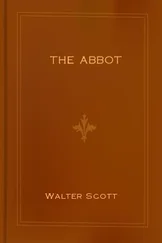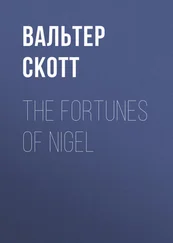Walter Scott - The Fortunes of Nigel
Здесь есть возможность читать онлайн «Walter Scott - The Fortunes of Nigel» весь текст электронной книги совершенно бесплатно (целиком полную версию без сокращений). В некоторых случаях можно слушать аудио, скачать через торрент в формате fb2 и присутствует краткое содержание. Год выпуска: 2004, Жанр: Исторические приключения, на английском языке. Описание произведения, (предисловие) а так же отзывы посетителей доступны на портале библиотеки ЛибКат.
- Название:The Fortunes of Nigel
- Автор:
- Жанр:
- Год:2004
- ISBN:нет данных
- Рейтинг книги:3 / 5. Голосов: 1
-
Избранное:Добавить в избранное
- Отзывы:
-
Ваша оценка:
- 60
- 1
- 2
- 3
- 4
- 5
The Fortunes of Nigel: краткое содержание, описание и аннотация
Предлагаем к чтению аннотацию, описание, краткое содержание или предисловие (зависит от того, что написал сам автор книги «The Fortunes of Nigel»). Если вы не нашли необходимую информацию о книге — напишите в комментариях, мы постараемся отыскать её.
—SIR PHILIP SIDNEY
The Fortunes of Nigel — читать онлайн бесплатно полную книгу (весь текст) целиком
Ниже представлен текст книги, разбитый по страницам. Система сохранения места последней прочитанной страницы, позволяет с удобством читать онлайн бесплатно книгу «The Fortunes of Nigel», без необходимости каждый раз заново искать на чём Вы остановились. Поставьте закладку, и сможете в любой момент перейти на страницу, на которой закончили чтение.
Интервал:
Закладка:
Note VI. p. 98.—MRS. ANNE TURNER
Mrs. Anne Turner was a dame somewhat of the occupation of Mrs. Suddlechop in the text; that is, half milliner half procuress, and secret agent in all manner of proceedings. She was a trafficker in the poisoning of Sir Thomas Overbury, for which so many subordinate agents lost their lives, while, to the great scandal of justice, the Earl of Somerset and his Countess were suffered to escape, upon a threat of Somerset to make public some secret which nearly affected his master, King James. Mrs. Turner introduced into England a French custom of using yellow starch in getting up bands and cuffs, and, by Lord Coke's orders, she appeared in that fashion at the place of execution. She was the widow of a physician, and had been eminently beautiful, as appears from the description of her in the poem called Overbury's Vision. There was produced in court a parcel of dolls or puppets belonging to this lady, some naked, some dressed, and which she used for exhibiting fashions upon. But, greatly to the horror of the spectators, who accounted these figures to be magical devices, there was, on their being shown, "heard a crack from the scaffold, which caused great fear, tumult, and confusion, among the spectators and throughout the hall, every one fearing hurt, as if the devil had been present, and grown angry to have his workmanship showed to such as were not his own scholars." Compare this curious passage in the History of King James for the First Fourteen Years, 1651, with the Aulicus Coquinarius of Dr. Heylin. Both works are published in the Secret History of King James.
Note VII. p. 110.—LORD HUNTINGLEN
The credit of having rescued James I. from the dagger of Alexander Ruthven, is here fictitiously ascribed to an imaginary Lord Huntinglen. In reality, as may be read in every history, his preserver was John Ramsay, afterwards created Earl of Holderness, who stabbed the younger Ruthven with his dagger while he was struggling with the King. Sir Anthony Weldon informs us, that, upon the annual return of the day, the King's deliverance was commemorated by an anniversary feast. The time was the fifth of August, "upon which," proceeds the satirical historian, "Sir John Ramsay, for his good service in that preservation, was the principal guest, and so did the King grant him any boon he would ask that day. But he had such limitation made to his asking, as made his suit as unprofitable, as the action for which he asked it for was unserviceable to the King."
Note VIII. p. 115.—BUCKINGHAM
Buckingham, who had a frankness in his high and irascible ambition, was always ready to bid defiance to those by whom he was thwarted or opposed. He aspired to be created Prince of Tipperary in Ireland, and Lord High Constable of England. Coventry, then Lord Keeper, opposed what seemed such an unreasonable extent of power as was annexed to the office of Constable. On this opposition, according to Sir Anthony Weldon, "the Duke peremptorily accosted Coventry, 'Who made you Lord Keeper, Coventry?' He replied, 'The King.' Buckingham replied, 'It's false; 'twas I did make you, and you shall know that I, who made you, can, and will, unmake you.' Coventry thus answered him, 'Did I conceive that I held my place by your favour, I would presently unmake myself, by rendering up the seals to his Majesty.' Then Buckingham, in a scorn and fury, flung from him, saying, 'You shall not keep it long;' and surely, had not Felton prevented him, he had made good his word."—WELDON'S Court of King James and Charles.
Note IX. p. 134.—PAGES IN THE SEVENTEENTH CENTURY
About this time the ancient customs arising from the long prevalence of chivalry, began to be grossly varied from the original purposes of the institution. None was more remarkable than the change which took place in the breeding and occupation of pages. This peculiar species of menial originally consisted of youths of noble birth, who, that they might be trained to the exercise of arms, were early removed from their paternal homes, where too much indulgence might have been expected, to be placed in the family of some prince or man of rank and military renown, where they served, as it were, an apprenticeship to the duties of chivalry and courtesy. Their education was severely moral, and pursued with great strictness in respect to useful exercises, and what were deemed elegant accomplishments. From being pages, they were advanced to the next gradation of squires; from squires, these candidates for the honours of knighthood were frequently made knights.
But in the sixteenth century the page had become, in many instances, a mere domestic, who sometimes, by the splendour of his address and appearance, was expected to make up in show for the absence of a whole band of retainers with swords and bucklers. We have Sir John's authority when he cashiers part of his train.
"Falstaff will learn the humour of the age,
French thrift, you rogues, myself and skirted page."
Jonson, in a high tone of moral indignation, thus reprobated the change. The Host of the New Inn replies to Lord Lovel, who asks to have his son for a page, that he would, with his own hands hang him, sooner
"Than damn him to this desperate course of life.
LOVEL. Call you that desperate, which, by a line
Of institution, from our ancestors
Hath been derived down to us, and received
In a succession, for the noblest way
Of brushing up our youth, in letters, arms,
Fair mien, discourses civil, exercise,
And all the blazon of a gentleman?
Where can he learn to vault, to ride, to fence,
To move his body gracefully, to speak
The language pure, or to turn his mind
Or manners more to the harmony of nature,
Than in these nurseries of nobility?
HOST. Ay, that was when the nursery's self was noble,
And only virtue made it, not the market,
That titles were not vended at the drum
And common outcry; goodness gave the greatness,
And greatness worship; every house became
An academy, and those parts
We see departed in the practice now
Quite from the institution.
LOVEL. Why do you say so,
Or think so enviously? do they not still
Learn us the Centaur's skill, the art of Thrace,
To ride? or Pollux' mystery, to fence?
The Pyrrhick gestures, both to stand and spring
In armour; to be active for the wars;
To study figures, numbers and proportions,
May yield them great in counsels and the art;
To make their English sweet upon their tongue?
As reverend Chaucer says.
HOST. Sir, you mistake;
To play Sir Pandarus, my copy hath it,
And carry messages to Madam Cressid;
Instead of backing the brave steed o'mornings.
To kiss the chambermaid, and for a leap
O' the vaulting horse, to ply the vaulting house;
For exercise of arms a bale of dice,
And two or three packs of cards to show the cheat
And nimbleness of hand; mistake a cloak
From my lord's back, and pawn it; ease his pockets
Of a superfluous watch, or geld a jewel
Of an odd stone or so; twinge three or four buttons
From off my lady's gown: These are the arts,
Or seven liberal deadly sciences,
Of pagery, or rather paganism,
As the tides run; to which, if he apply him,
He may, perhaps, take a degree at Tyburn,
A year the earlier come to read a lecture
Upon Aquinas, at Saint Thomas-a-Watering's
And so go forth a laureate in hemp-circle."
The New Inn, Act I.
Note X. p. 135.—LORD HENRY HOWARD
Lord Henry Howard was the second son of the poetical Earl of Surrey, and possessed considerable parts and learning. He wrote, in the year 1583, a book called, A Defensative against the Poison of supposed Prophecies. He gained the favour of Queen Elizabeth, by having, he says, directed his battery against a sect of prophets and pretended soothsayers, whom he accounted infesti regibus, as he expresses it. In the last years of the Queen, he became James's most ardent partisan, and conducted with great pedantry, but much intrigue, the correspondence betwixt the Scottish King and the younger Cecil. Upon James's accession, he was created Earl of Northampton, and Lord Privy Seal. According to De Beaumont the French Ambassador, Lord Henry Howard, was one of the greatest flatterers and calumniators that ever lived.
Читать дальшеИнтервал:
Закладка:
Похожие книги на «The Fortunes of Nigel»
Представляем Вашему вниманию похожие книги на «The Fortunes of Nigel» списком для выбора. Мы отобрали схожую по названию и смыслу литературу в надежде предоставить читателям больше вариантов отыскать новые, интересные, ещё непрочитанные произведения.
Обсуждение, отзывы о книге «The Fortunes of Nigel» и просто собственные мнения читателей. Оставьте ваши комментарии, напишите, что Вы думаете о произведении, его смысле или главных героях. Укажите что конкретно понравилось, а что нет, и почему Вы так считаете.






